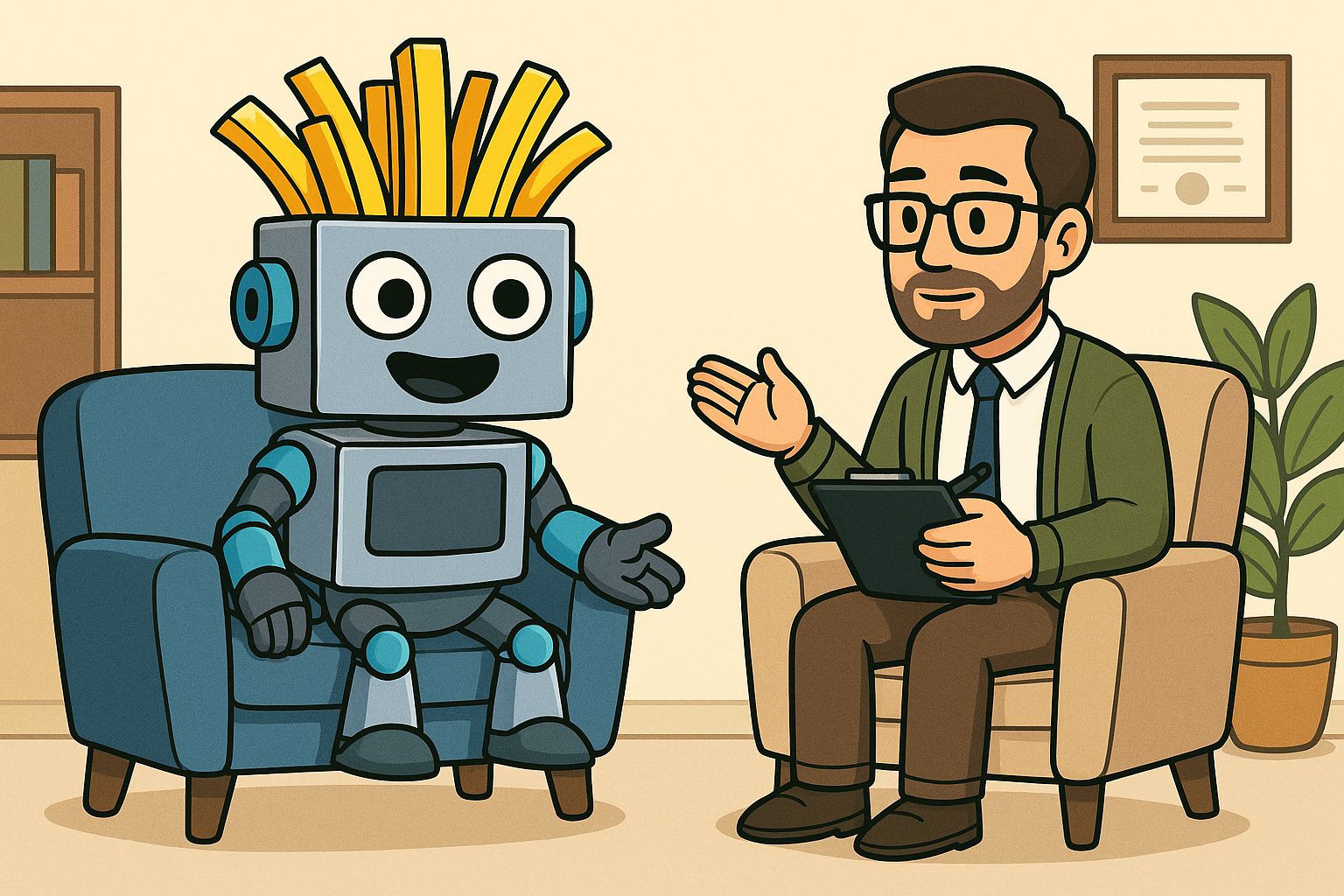
Most people hit snooze on Sundays. You’re hitting smarter. Here’s your weekend fry-up: crisp, fresh, and ahead of the curve! 🍟
🤯 MYSTERY AI LINK 🤯
(The mystery link can lead to ANYTHING AI-related: tools, memes, articles, videos, and more…)
Stop Fraud Before It Starts
Are you winning but sales but losing revenue? Post-purchase fraud "digital shoplifting" slips past traditional tools and drains your revenue through false disputes, policy abuse, and wasted shipping.
Chargeflow Prevent closes that gap. Our AI-powered platform blocks fraud before fulfillment, cuts disputes by up to 90%, and saves your team wasted costs.
Today’s Menu
Appetizer: APA issues warning about using AI for mental health 🙏
Entrée: Google turns NYC subway dreams into an AI reality 🚇
Dessert: Google introduces Private AI Compute 🤫
🔨 AI TOOLS OF THE DAY
👨💻 JDoodle: Build websites, apps, and designs with prompts. → Check it out
💵 Blindspot: Easily book billboards anywhere in the world. → Check it out
APA ISSUES WARNING ABOUT USING AI FOR MENTAL HEALTH 🙏
What’s up? The American Psychological Association has issued a warning: AI chatbots and wellness apps cannot replace “real” mental health care.
Want the details? In a new health advisory, the APA cautions against relying on generative AI tools for emotional support or mental health treatment. While these tools are cheap and easy to access, they lack scientific backing, proper oversight, and safeguards—especially for vulnerable groups like teens. The APA notes that people often turn to AI apps out of desperation or convenience when they can’t find or afford a therapist, but these tools aren’t designed to handle serious mental health issues.
“Artificial intelligence will play a critical role in the future of health care, but it cannot fulfill that promise unless we also confront the long-standing challenges in mental health. We must push for systemic reform to make care more affordable, accessible, and timely—and to ensure that human professionals are supported, not replaced, by AI.”
Why does this matter? We’re facing a growing mental health crisis, and technology alone isn’t the answer. The APA urges policymakers, tech companies, and clinicians to work together to modernize regulations, improve safety standards, and ensure AI tools are used ethically. According to the APA, real progress means fixing the root issues in our mental health system—not outsourcing care to unproven technology.
Go from AI overwhelmed to AI savvy professional
AI will eliminate 300 million jobs in the next 5 years.
Yours doesn't have to be one of them.
Here's how to future-proof your career:
Join the Superhuman AI newsletter - read by 1M+ professionals
Learn AI skills in 3 mins a day
Become the AI expert on your team
GOOGLE TURNS NYC SUBWAY DREAMS INTO AN AI REALITY 🚇
What’s going on? Google DeepMind just turned New York City’s subway system into an AI-powered art gallery.
How does it work? As part of its “Imagine If…” project, Google has installed QR codes across subway screens that let New Yorkers submit creative ideas about their city—like floating parks or glowing buildings. Five local artists, one from each borough, will take those ideas and use Google’s Veo, a powerful AI video tool, to create short video artworks. These pieces will be shown on thousands of MTA screens for four weeks, leading up to a final showcase in Times Square on December 14.
Why does this matter? This is a big deal because it brings cutting-edge AI out of the lab and into everyday life. Instead of just reading about what AI can do, New Yorkers get to play with it, shape it, and see their ideas come to life.
GOOGLE INTRODUCES PRIVATE AI COMPUTE 🤫
What’s new? Google has introduced Private AI Compute, a new cloud-based AI system that delivers powerful, personalized features while keeping your data private—even from Google itself.
How does it work? Private AI Compute blends the advanced reasoning of Google's Gemini cloud models with strict privacy protections typically found in on-device processing. When your device uses this system—say, to generate smart suggestions or summarize a recording—it connects to a secure, locked-down cloud environment built on custom Google chips. This space is designed so that only you can access your personal data. Not even Google can see it. The system uses multiple layers of security, including encryption and isolated environments, to ensure your data stays safe and confidential.
Why should you care? This means you can enjoy faster, smarter, and more personalized AI features—like better suggestions and real-time help—without giving up your privacy. It’s a big step toward making AI both more powerful and more trustworthy for everyday use.
HAS AI REACHED SINGULARITY? CHECK OUT THE FRY METER BELOW:
What do ya think of this latest newsletter?
Your feedback on these daily polls helps us keep the newsletter fresh—so keep it coming!






